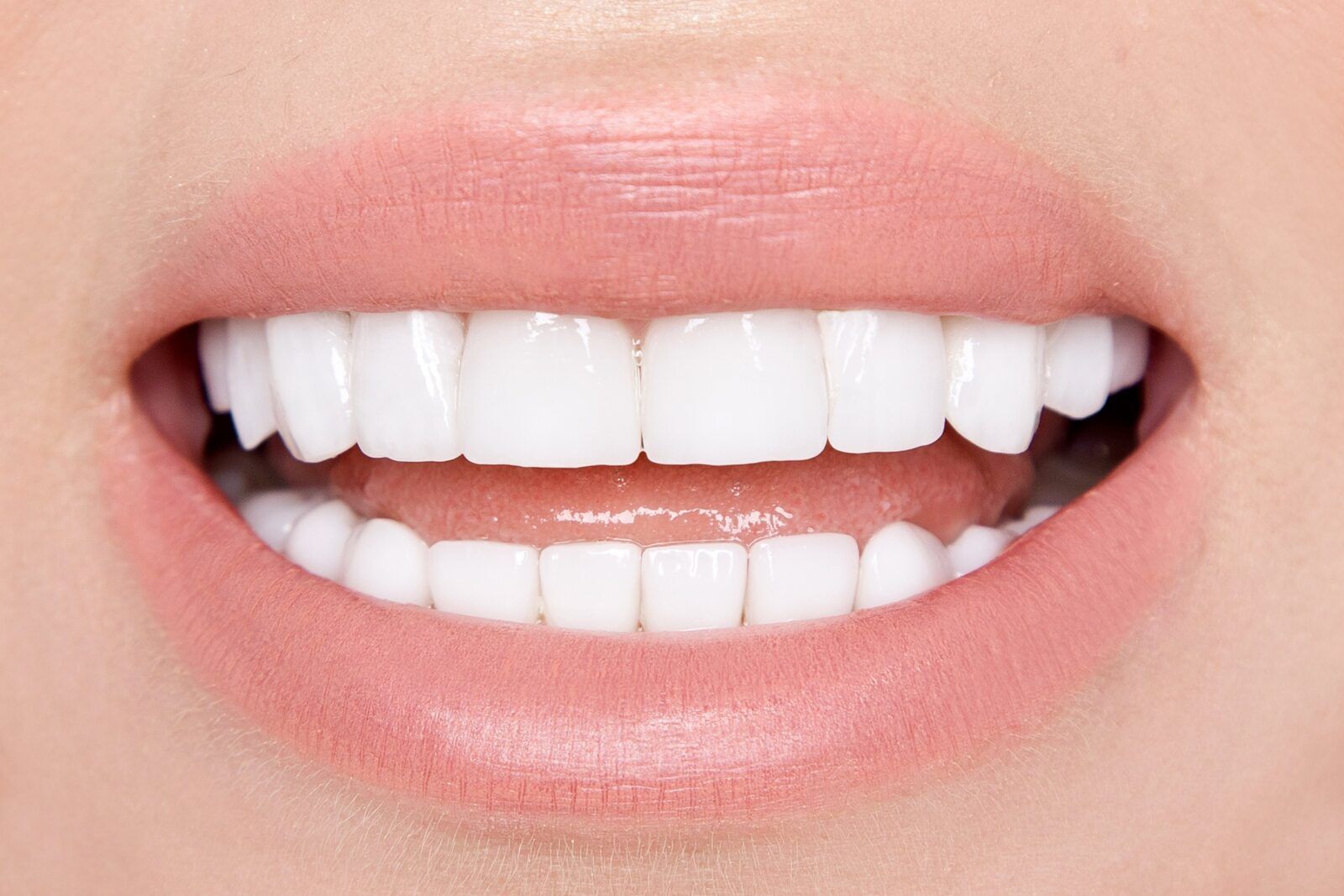A dazzling smile can boost your confidence and leave a lasting impression. For many people looking to enhance their teeth, dental veneers have become a popular option. Veneers are thin, custom-made shells that are placed over the front surface of your teeth, providing an instant transformation. While they can undoubtedly create a picture-perfect smile, it’s essential to weigh the pros and cons before deciding if veneers are the right choice for you.
Understanding Veneers
Dental veneers are thin, custom-made shells or covers that are designed to improve the appearance of your teeth. These shells are typically made of porcelain or composite resin and are permanently bonded to the front surface of your natural teeth. Veneers are a popular cosmetic dentistry option because they can effectively address a range of dental imperfections and provide a dramatic transformation to your smile.
Types of Veneers
There are two primary types of dental veneers: porcelain veneers and composite resin veneers. These two types differ in terms of the materials used, the procedure for application, durability, and cost. Here’s a closer look at each:
| Aspect | Porcelain Veneers | Composite Resin Veneers |
| Material | High-quality porcelain | Tooth-colored resin |
| Durability | Lasts 10-15+ years | Lasts several years |
| Procedure | Multiple appointments | Typically one visit |
| Tooth Preparation | Enamel removal required | Minimal enamel removal |
| Staining Resistance | Highly resistant | Less resistant |
| Cost | More expensive | More affordable |
| Appearance | Highly natural, lifelike | Natural appearance |
The Pros of Veneers
Aesthetic Enhancement
Perhaps the most significant advantage of dental veneers is their ability to dramatically improve the appearance of your teeth. These thin, custom-made shells are expertly designed to conceal a range of imperfections, including stains, discoloration, chipped or misshapen teeth, and even gaps between teeth. With veneers, the transformation is nothing short of remarkable. They provide a solution that not only brightens and whitens teeth but also creates a beautifully symmetrical and harmonious appearance. Veneers offer a level of customization that allows individuals to choose the shade, shape, and size of their veneers, ensuring that the final result complements their unique facial features and personal preferences. Whether it’s achieving a Hollywood-worthy smile or simply restoring the natural beauty of one’s teeth, veneers are a powerful tool in the pursuit of a more aesthetically pleasing and confident grin.
Minimally Invasive
One of the standout advantages of veneers is their minimally invasive nature. Unlike more extensive dental procedures, such as crowns or orthodontic work, which can involve significant tooth reduction or alterations, veneers require only a small amount of enamel removal from the tooth’s surface. This conservative approach means that the majority of your natural tooth structure remains intact. As a result, the procedure is typically less uncomfortable and requires a shorter recovery time. The minimally invasive nature of veneers allows for a dramatic smile transformation without compromising the overall health and strength of your teeth, making them an attractive option for those seeking a quick and relatively painless cosmetic enhancement.
Long-Lasting
Another compelling advantage of veneers is their longevity. Veneers, especially those made from high-quality porcelain, are remarkably durable and can withstand the rigors of daily use. With proper care and maintenance, veneers can last a decade or more, often exceeding 10 to 15 years. Their resistance to staining from everyday culprits like coffee, tea, and tobacco further contributes to their lasting appeal. This long-lasting nature not only offers individuals an enduring improvement in their smile but also provides a cost-effective solution over time. Veneers are an investment in a radiant and confident smile that can continue to shine for many years, making them a popular choice for those seeking a sustainable cosmetic dental solution.
Customizable
Veneers are highly customizable. Each veneer is meticulously crafted to meet the specific needs and desires of the patient. From choosing the ideal shade of white to match your natural teeth to determining the perfect shape and size that complements your facial features, veneers offer a level of personalization that ensures a stunning and harmonious result. Dentists work closely with patients to tailor every detail of the veneers, creating a smile that feels uniquely their own. This level of customization empowers individuals to achieve their dream smile, whether it’s a subtle enhancement or a dramatic transformation, making veneers an appealing choice for those seeking a truly personalized and natural-looking aesthetic improvement.
Instant Results
One of the most enticing pros of veneers is their ability to deliver instant results. Unlike many other dental procedures that may require multiple appointments or a lengthy treatment process, veneers can provide a dramatic transformation in just a few visits to the dentist. Once the custom-made veneers are ready, they can be permanently bonded to your teeth within a matter of hours, instantly correcting a range of cosmetic imperfections. This immediate change means that you can leave the dental office with a brand-new smile, boosting your confidence and self-esteem right away. Veneers offer a quick and convenient solution for individuals looking to enhance their appearance and enjoy the benefits of a stunning smile without a prolonged waiting period.
The Cons of Veneers
Irreversible
One notable drawback of veneers is their irreversibility. To accommodate the veneers, a thin layer of enamel is typically removed from the surface of the natural teeth. Once this enamel is removed, it cannot be replaced. This permanent alteration means that individuals who opt for veneers will always need to have some form of dental restoration on those teeth. In the event that veneers need to be replaced or removed due to damage, wear, or other reasons, the underlying natural teeth may be more susceptible to sensitivity, and alternative treatments may be necessary. It’s a crucial consideration for anyone thinking about getting veneers, as the decision to proceed is a permanent one with no turning back. Consulting with a qualified dentist is essential to fully understand and weigh the irreversible nature of veneers against their cosmetic benefits.
Cost
Another notable downside of veneers is their cost, which can be a significant con for many individuals. Veneers are considered a cosmetic dental procedure, and they are typically not covered by dental insurance, as insurance plans tend to focus on essential and medically necessary treatments. The price of veneers can vary widely depending on factors such as the number of teeth being treated, the type of veneers (porcelain or composite resin), and the geographic location of the dental practice. Porcelain veneers, known for their durability and natural appearance, are usually more expensive than composite resin veneers. While veneers can provide a remarkable aesthetic improvement, their price tag can be a barrier for some, making it essential for individuals to budget and consider their financial situation before proceeding with the treatment. It’s also worth noting that the initial investment may be offset by their long-lasting nature and the confidence boost they can provide.
Maintenance
Maintenance is an important consideration when it comes to veneers, and it can be seen as a con for some individuals. While veneers are durable and resistant to stains, they are not entirely maintenance-free. To ensure their longevity and maintain their appearance, regular oral hygiene practices are essential. This includes daily brushing and flossing, as well as routine dental check-ups and professional cleanings. Additionally, individuals with veneers should avoid habits that could potentially damage them, such as biting on hard objects or using teeth for tasks like opening packages. In some cases, veneers may require replacement if they become damaged or discolored over time, which can add to the long-term cost. Therefore, those considering veneers should be committed to maintaining their oral health and be prepared for the ongoing care required to ensure the continued success of their veneers.
Sensitivity
One potential drawback of veneers is the risk of tooth sensitivity, which can be a con for some individuals. The process of preparing the teeth for veneers involves the removal of a small amount of enamel, which may expose the sensitive dentin layer underneath. As a result, some people may experience increased tooth sensitivity, especially to hot or cold temperatures, after getting veneers. While this sensitivity is often temporary and tends to subside as the teeth adjust to the veneers, it can be uncomfortable during the initial period. To mitigate this issue, it’s crucial for individuals to discuss their concerns with their dentist, who can provide recommendations for managing and minimizing tooth sensitivity following the placement of veneers.
Not Suitable for Everyone
Another important consideration is that veneers are not suitable for everyone, which can be seen as a con. While veneers can effectively address a wide range of cosmetic dental issues, they may not be the best option for individuals with severe dental problems or specific oral health conditions. For instance, if someone has significant gum disease, extensive tooth decay, or severely misaligned teeth, these underlying issues may need to be treated before veneers can be considered. Additionally, individuals who grind or clench their teeth excessively may not be ideal candidates for veneers, as these habits can place additional stress on the veneers and potentially lead to damage. Therefore, a comprehensive evaluation by a qualified dentist is crucial to determine whether veneers are a suitable choice based on an individual’s unique oral health and cosmetic goals. In some cases, alternative treatments or a combination of procedures may be recommended to achieve the desired results.
Conclusion
Dental veneers can undoubtedly provide a quick and effective solution for achieving a beautiful smile. However, like any cosmetic procedure, they come with both pros and cons that should be carefully considered. It’s essential to consult with a qualified dentist who can assess your individual needs and discuss whether veneers are the right choice for you. Remember that maintaining good oral hygiene and regular dental check-ups are crucial for the long-term success of your veneers, should you choose to get them. Ultimately, the decision to pursue veneers should align with your goals for your smile and your commitment to maintaining them over time.

